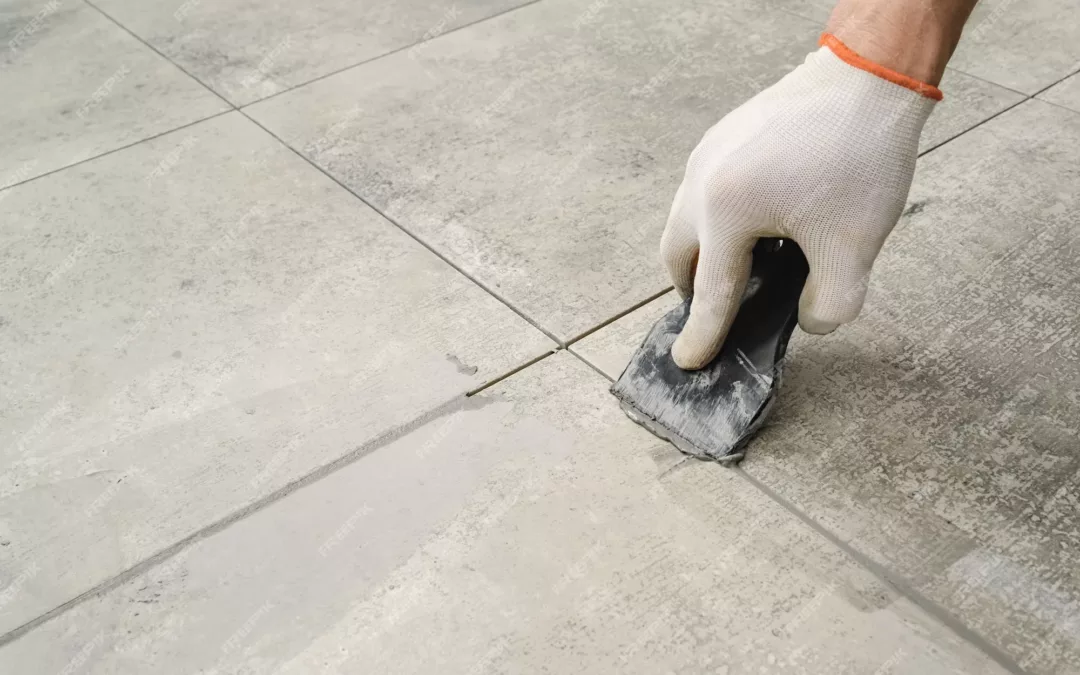Tiles can be installed on almost any variety of floors. Flooring which can include heavy foot traffic or moisture, you can still install tiles. Tiles require very less care and are not only long lasting but water resistance as well. There are variety of colour and pattern options available. Some tiles are also have a resemblance to stones and wooden designs. If you want to install tiles, then you might need grout as well. There are various types of grouts available in the market which are used on tiles and stones installation.
What is Grout??
Grout are a mixture of cement, water & sand which is filled in the gaps of tiles. Grouts when combined with water and left to dry it harderns. Selecting the right grout is crucial. Unlike adhesives, grouts are used to fill the gaps between the gaps of tiles. Tile & stone grouts’ main objectives are to make them more attractive. Grouts are available in wide numbers of colour options. The spacing between tiles are 3mm, 5mm and so on. After the tiles are installed then you fill grout in the joints.
Types of Grouts –
Choosing the appropriate grout is crucial for your tiles & stones. For different types of tiles different types of grouts are available. Following are the 3 most common tile and stone grouts in the martket:-
- Epoxy Grout – Epoxy grout is non-porous and does not require sealing. Epoxy grout is not only prone to breaking overtime, but it also prevents bacterial development.
- Sanded Grout – Joints that are large than we require sanded grout. The sand helps the grout to stick to the joints. Sanded grouts have a grainy texture once cured. Sanded grouts has to be sealed to keep UV rays, dirts & spills as it will discoloure the grout. Grout must be clean if it spills out of joints before curing.
- Unsanded Grout- Smaller tiles joints are filled with unsanded grouts. You need to apply more pressure to get into smaller joints.It is critical to completely fill the tile joints or it will collapse. Unsanded grouts must be sealed in the same way as sanded grouts to protect it against spills, stains, UV rays & discolouration.
The Importance Of Grouting
- Aesthetic Enhancement: Grout is used to create a uniform and attractive appearance in tiled surfaces. It comes in various colors, allowing homeowners and builders to choose a grout color that complements the tiles and the overall design of a space.
- Tile Alignment: Grout helps to keep tiles in place and maintain a consistent spacing between them. It prevents tiles from shifting or moving over time, ensuring a stable and durable installation.
- Moisture Resistance: Depending on the type of grout used, it can provide a level of water resistance. This is particularly important in areas like bathrooms, kitchens, and other wet environments, as grout helps to prevent water from seeping beneath the tiles.
- Structural Support: Grout can contribute to the overall structural integrity of a tiled surface. It helps distribute loads evenly, reducing the risk of tiles cracking or breaking.
- Stain Resistance: Some grout formulations are designed to be resistant to stains, which is crucial in areas where spills or dirt may come into contact with the grout lines.
- Longevity: Properly installed and maintained grout can significantly extend the lifespan of a tiled surface, as it protects against moisture infiltration and helps prevent tiles from becoming loose or damaged.
For more information regarding grouting contact us.

